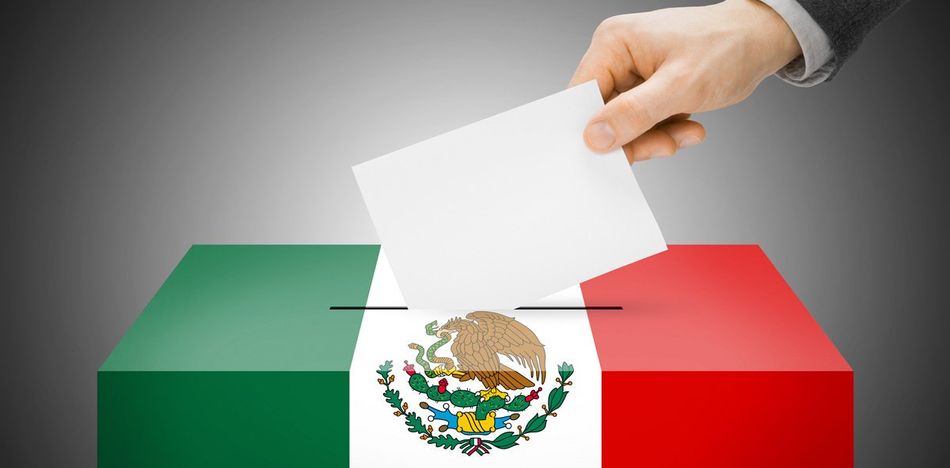
By Gerardo Enrique Garibay Camarena
EspañolIt was fun to dream while we could. A lot of the country was attracted to the prospect of independent candidates in Mexico’s presidential race, who showed promise for breaking party monopolies and encouraging greater diversity and quality in the candidates’ proposals. But it just didn’t work.
For years, the Mexican media pushed the narrative of independent candidates, encouraging the success of figures such as Jorge Castañeda, who only broke into the political scene in 2015, backed by the success of campaigns of great symbolic weight: Kumamoto for Deputy in Jalisco, Clouthier for Federal Deputy in Sinaloa and Bronco for Governor of Nuevo León. These figures convinced us that it was possible to compete in and win the games without having the backing of a permanent political structure.
Like 3D cinema, the independents promised an interactive and novel experience, but also like 3D cinema, they were more about image than substance, and ended up making the audience dizzy. For example: in this year’s elections, 270 independent candidates registered for races in the country. Only six won — all at the municipal level.
- Read More: Mexico’s President Admits He Met Chiefs of Megacorrupt Brazilian Firm Odebrecht
- Read More: Mexico and Canada Vow to Maintain Free Trade Even If US Leaves NAFTA
Why? Because the scene of the independents was filled very quickly with an unhealthy mix of disgraced partisans and activists possessing more vanity than support. The same is happening for the 2018 race, where there’s no shortage of hopefuls. Meanwhile, the long-time, former PAN candidate and Ana Lucia, representative of the “Now” movement, are more focused on publicity stunts than real policy.
The same thing happens with presidential candidates.
The INE received about 100 applications to become independent candidates, 48 of which met the requirements and began, a few days ago, to gather the more than 860,000 signatures needed to appear on the 2018 ballot. Election authorities revealed the results of the first week of signature collections, and the numbers could not be more pathetic.
Combined, they collected 27,000 signatures. Logically, you’d can expect that they would collect the most signatures during the first week. Margarita Zavala, for all her promise in the polls, has a mere 13,000 signatures. She would need to quadruple the average number of signatures attained per day during the upcoming four months to even be eligible by February 12, 2018.
If you thought that was bad, the aspirations of others have collapsed so dramatically that it is almost hard to believe: María de Jesús Patricio Martínez, of the EZLN, obtained only 4,200 signatures, despite decades of work by the Zapatistas to consolidate a social support structure both in Chiapas and in the rest of the country. Rios Peter, the independent of the left who has a Senate position to help his cause, did not even get 3,000. Bronco, the Governor of Nuevo León, was unable to garner support from his own administration and reached only 2,600 signatures. Trailing behind him is Ferríz de Con, with just over 2,000 signatures. No other candidate even reached 250.
Once again, let’s be honest, the numbers are so indisputable that we must accept that the model and the hopes of the independents are a failure. Citizens distrust the parties and despise the political class, but they also distrust those who they perceive to be disingenuous, still part of that political class.
Of course, there are many excuses: there was an error with the application, the process demands too many signatures, the power of the mafia and organized crime, etc. Granted, 860,000 signatures is a lot, but they can’t really complain because they never even came close. Nobody got 800,000, 500,000, 300,000, or even 100,000. At this rate, none of them will ever be eligible.
Let’s say one of those auspicious 48 candidates surprises us all and magically gains enough support. Even then, they could only do so with the support structure of a political party, meaning that in order to get on the ballot, they would have to become someone’s pawn, and no longer be a threat to anyone. People realize this.
The collapse of the independents that we have witnessed in recent days leaves us with a clear, painful and necessary choice in light of the fact that the mechanism of independent candidacies, in current circumstances, is legal but not viable.
In Mexico, the elections will continue to be a rigged game until the people decide to invest in someone that can make real change.
Gerardo Enrique Garibay Camarena is a doctorate student of law at the Autonomous Popular University of Puebla.
 Versión Español
Versión Español












